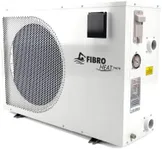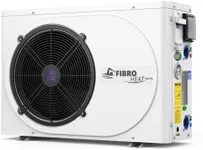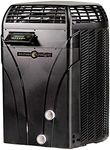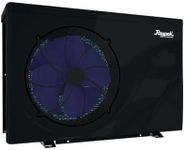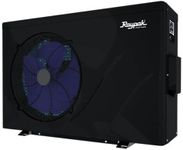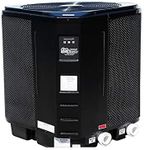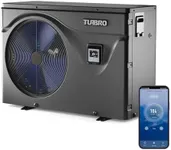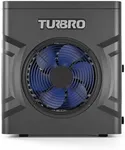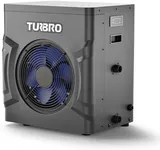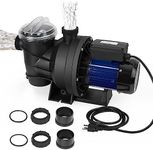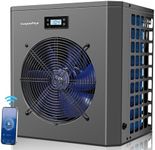Buying Guide for the Best Heat Pump For Above Ground Pools
Choosing the right heat pump for your above-ground pool can make a significant difference in your swimming experience. A heat pump helps maintain a comfortable water temperature, extending your swimming season and ensuring you can enjoy your pool even when the weather is cooler. To select the best heat pump for your needs, it's essential to understand the key specifications and how they relate to your pool and usage habits.Heating Capacity (BTU)Heating capacity, measured in British Thermal Units (BTU), indicates the amount of heat the pump can produce. This is crucial because it determines how quickly and effectively the pump can heat your pool. Smaller pools or those in warmer climates may require a heat pump with a lower BTU rating (around 50,000-75,000 BTU), while larger pools or those in cooler climates may need a higher BTU rating (100,000 BTU or more). To choose the right capacity, consider the size of your pool and the average temperature of your location.
COP (Coefficient of Performance)The Coefficient of Performance (COP) measures the efficiency of the heat pump, indicating how much heat is produced per unit of electricity consumed. A higher COP means better efficiency and lower operating costs. COP values typically range from 3.0 to 7.0. If you plan to use your pool frequently or for extended periods, opting for a heat pump with a higher COP can save you money in the long run.
Compatibility with Pool SizeEnsuring that the heat pump is compatible with the size of your pool is essential for optimal performance. Manufacturers usually provide guidelines on the maximum pool size their heat pumps can handle. If your pool is larger than the recommended size, the heat pump may struggle to maintain the desired temperature. Always check the manufacturer's specifications and choose a heat pump that matches or exceeds the size of your pool.
Climate SuitabilityHeat pumps are designed to operate efficiently within specific temperature ranges. Some models are better suited for warmer climates, while others can perform well in cooler conditions. If you live in a region with mild winters, a standard heat pump should suffice. However, if you experience colder temperatures, look for a heat pump designed to operate efficiently in lower temperatures to ensure consistent performance.
Noise LevelThe noise level of a heat pump can impact your overall pool experience. Heat pumps generate noise while operating, and this can vary significantly between models. If you prefer a quieter environment, look for heat pumps with lower decibel (dB) ratings. Noise levels typically range from 50 dB to 70 dB. Consider where the heat pump will be installed and how close it is to living areas or neighbors when making your choice.
Durability and WarrantyDurability and warranty are important factors to consider, as they can affect the long-term value and reliability of your heat pump. Look for models made with high-quality materials and components that can withstand outdoor conditions. A longer warranty period (typically 2-10 years) can provide peace of mind and protection against potential issues. Research customer reviews and manufacturer reputation to ensure you are investing in a reliable product.
Installation and MaintenanceConsider the ease of installation and maintenance when choosing a heat pump. Some models are designed for straightforward installation, while others may require professional assistance. Regular maintenance, such as cleaning filters and checking connections, is necessary to keep the heat pump running efficiently. Choose a model with user-friendly maintenance features and clear instructions to ensure hassle-free operation.
